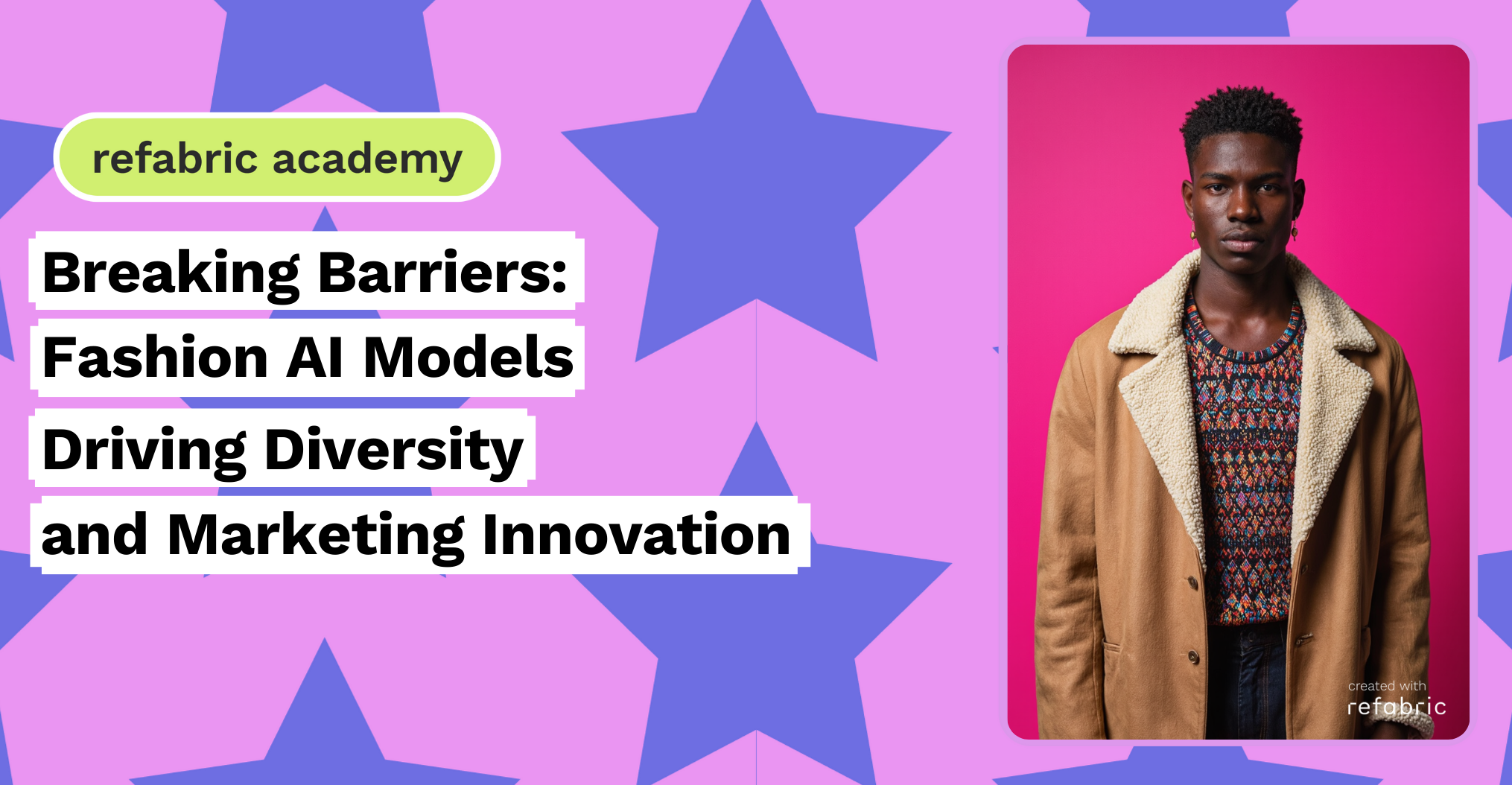In today’s industry, fashion AI is ushering in a new era of creativity and inclusivity, transforming how brands approach both representation and marketing execution. As fashion continues to evolve alongside technological innovation, AI-generated models are emerging as a powerful tool, enhancing diversity, streamlining content creation, and reshaping how brands connect with modern audiences.
The Rise of AI-Generated Models in Fashion
AI-generated models, are hyper-realistic digital humans created using advanced artificial intelligence algorithms. These models can be customized by body type, ethnicity, gender identity, age, and even facial expression, offering an infinite range of looks without the limitations of physical casting. Powered by fashion AI, these virtual figures are helping brands showcase clothing on a wide spectrum of human forms, representing inclusivity like never before.
Unlike traditional models, AI-generated counterparts are available on demand, globally scalable, and free from logistical challenges like travel, scheduling, or location shoots. Designers and marketers can instantly generate professional-grade visuals tailored to any demographic or market, a strategic advantage in a digital-first retail world.
Enhancing Representation with Fashion AI
One of the most exciting benefits of fashion AI is its role in expanding representation. Brands can now reflect their diverse customer base with unprecedented accuracy, ensuring that all body types, skin tones, and identities are represented across campaigns and e-commerce platforms.
With fashion AI-generated models, inclusion is no longer limited by budget or availability. Brands can feature plus-size models, older avatars, models with disabilities, and more, all while maintaining editorial-quality imagery. This technology enables the fashion industry to better reflect real-world beauty, promoting empowerment and visibility across all communities.
A Vogue-Worthy Moment for AI Models
This movement reached a notable milestone in August 2025, when Vogue featured an AI-generated model in a Guess ad within its print edition. The virtual model, designed to resemble a modern muse with Mediterranean features, wore the brand’s fall collection in a series of lifelike images. This marked one of the first times a mainstream fashion magazine showcased AI modeling at scale, signaling a turning point in public and industry perception.
What was once a fringe concept is now being embraced by global brands and luxury publications alike, proving that fashion AI-generated models are more than a novelty, they’re a viable, compelling creative solution.
Smarter Marketing, Powered by AI
Beyond visuals, fashion AI is optimizing how campaigns are developed, personalized, and distributed. Brands can test different avatars, looks, and settings to see what resonates best with specific audiences before investing in large-scale production. Through data-driven iteration, marketers can tailor content by region, cultural preferences, and audience behaviors, driving deeper engagement and higher conversion rates.
This agility is especially valuable in today’s fast-paced fashion landscape. Collections move quickly, and consumer trends change overnight. With AI-generated models, brands can instantly update their campaigns to reflect the latest styles or adapt imagery across seasonal and regional markets without restarting entire shoots.
Sustainable and Cost-Efficient Campaign Creation
Fashion AI also supports sustainable marketing practices. Traditional photoshoots often involve high carbon footprints due to travel, set construction, and materials. By reducing the need for physical resources, synthetic models help brands lower their environmental impact.
Moreover, creating content with AI-generated models significantly reduces production costs. A single AI-driven platform can produce hundreds of campaign images in various poses, outfits, and environments within hours, freeing up budget for other strategic initiatives while maintaining high visual standards.
The Future of Representation and Reach
As fashion AI continues to evolve, the possibilities for its application in branding and marketing will only expand. With advanced personalization, brands can eventually allow consumers to “shop the look” using avatars that resemble themselves, boosting relatability and buyer confidence.
Fashion is about storytelling and with AI-generated models, those stories can now be told in more inclusive, efficient, and innovative ways. By embracing this technology, fashion brands are not just keeping pace, they’re leading the charge toward a smarter, more representative future.
